Search
Did you mean: Philosophy?
Search Results
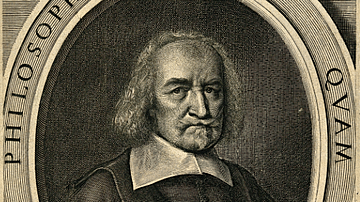
Definition
Thomas Hobbes
Thomas Hobbes (1588-1679) was an English philosopher who famously summarised his pessimistic view of human nature in his greatest work, Leviathan, published in 1651. Hobbes believed that the life of humanity in the state of nature is short...
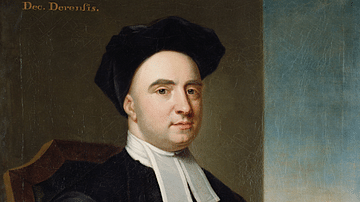
Definition
George Berkeley
George Berkeley (1685-1753) was an Anglo-Irish bishop and an empiricist and idealist philosopher. He infamously claimed that no matter exists outside of God and that things only exist outside of our minds and perceptions because God perceives...

3D Image
Greek Poet or Philosopher
A Greek Poet or Philosopher, Roman copy of a Greek 3rd-2nd century BCE. original, marble, Ny Carlsberg Glyptotek (Copenhagen, Denmark). Made with Memento Beta (now ReMake) fron Auodesk.

Definition
Blaise Pascal
Blaise Pascal (1623-1662) was a French scientist, mathematician, and philosopher whose work influenced both the Scientific Revolution and later European thought. Pascal is known for his practical achievements in science, such as a calculating...
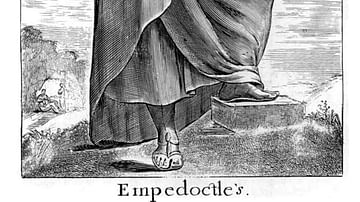
Definition
Empedocles
Empedocles (l. c. 484-424 BCE) was a Greek philosopher and mystic whose work harmonized the philosophies of Parmenides (l. c. 485 BCE), Heraclitus (l. c. 500 BCE), and Pythagoras (l. c. 571 to c. 497 BCE) in presenting a unified vision of...
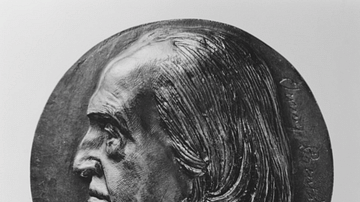
Definition
Jeremy Bentham
Jeremy Bentham (1748-1832) was an English philosopher and liberal social reformer best known as the founder of utilitarianism based on the greatest happiness principle, that is, rationally judging the success of a law by considering how many...

Definition
Hypatia of Alexandria
Hypatia of Alexandria (c. 370 - March 415) was a female philosopher and mathematician, born in Alexandria, Egypt possibly in 370 (although some scholars cite her birth as c. 350). Little is known of her life but her dramatic death at the...

Definition
Diogenes of Sinope
Diogenes of Sinope (l. c. 404-323 BCE) was a Greek Cynic philosopher best known for holding a lantern (or candle) to the faces of the citizens of Athens claiming he was searching for an honest man. He rejected the concept of "manners" as...
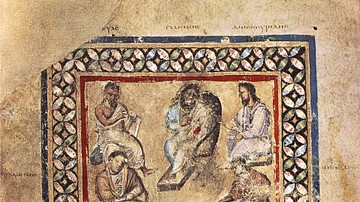
Definition
Galen
Galen (129-216 CE) was a Greek physician, author, and philosopher, working in Rome, who influenced both medical theory and practice until the middle of the 17th century CE. Owning a large, personal library, he wrote hundreds of medical treatises...

Definition
Heraclitus of Ephesus
Heraclitus of Ephesus (l. c. 500 BCE) was one of the early Pre-Socratic philosophers who, like the others, sought to identify the First Cause for the creation of the world. He rejected earlier theories such as air and water and claimed that...